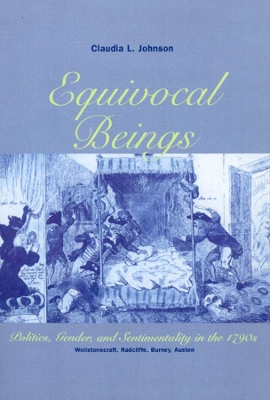In the wake of the French Revolution, Edmund Burke argued that civil order depended upon the masculine cultivation of traditionally feminine qualities such as sentiment, tenderness, veneration, awe and gratitude. Writers as diverse as Sterne, Goldsmith, Burke and Rousseau were politically motivated to represent authority figures as men of feeling, but denied women comparable authority by representing their feelings as inferior, pathological or criminal. Focusing on Mary Wollstonecraft, Ann Radcliffe, Frances Burney and Jane Austen, this work examines the legacy male sentimentality left for women of various political persuasions. Demonstrating the interrelationships among politics, gender and feeling in the fiction of this period, it provides detailed readings of Wollstonecraft, Radcliffe and Burney, and treats the qualities that were once thought to mar their work - grotesqueness, strain and excess - as indices of ideological conflict and as strategies of representation during a period of profound political conflict.
The author maintains that the reactionary reassertion of male sentimentality as a political duty displaced customary gender roles, rendering women, in Wollstonecraft's words, "equivocal beings."
- ISBN10 0226401847
- ISBN13 9780226401843
- Publish Date 15 June 1995 (first published 1 June 1995)
- Publish Status Active
- Publish Country US
- Imprint University of Chicago Press
- Edition 2nd ed.
- Format Paperback
- Pages 256
- Language English
- URL http://wiley.com/remtitle.cgi?isbn=9780226401843
